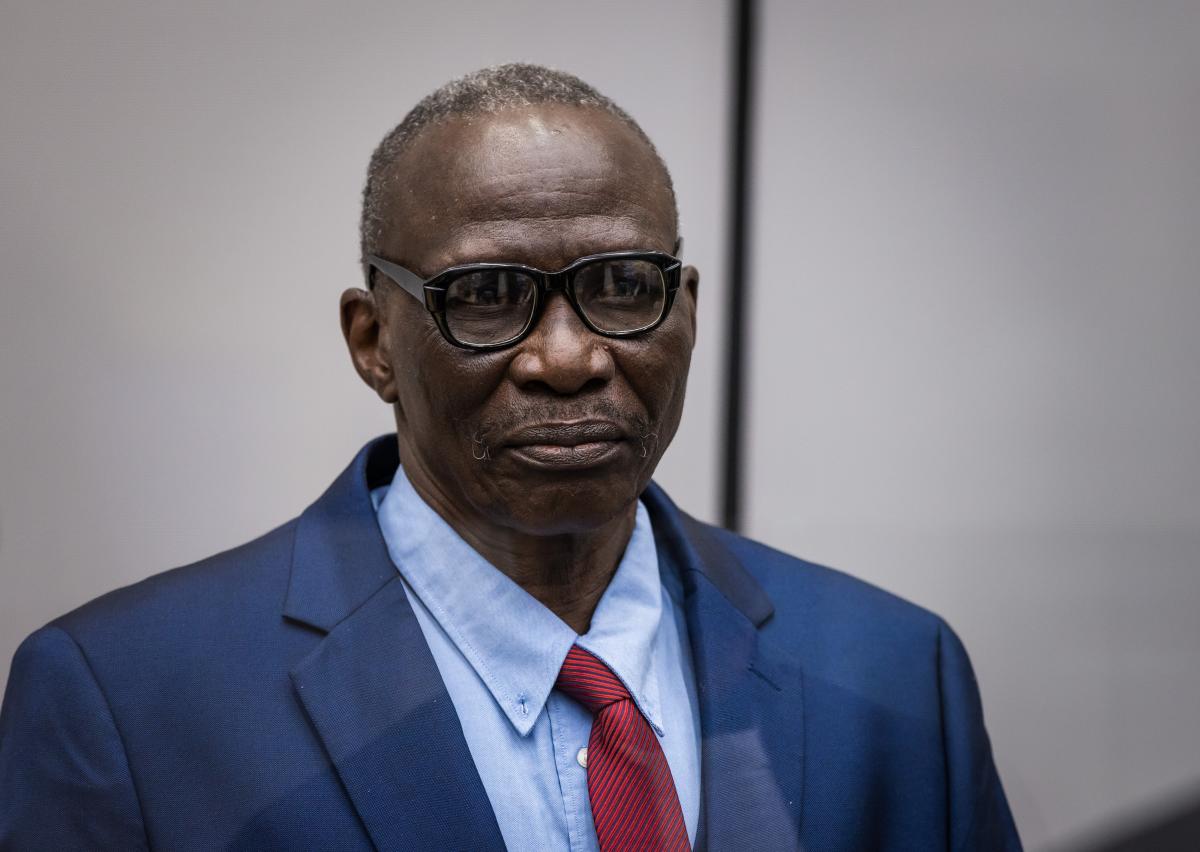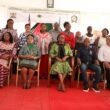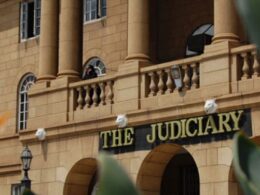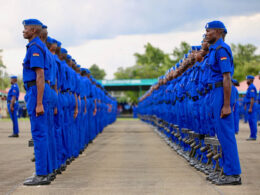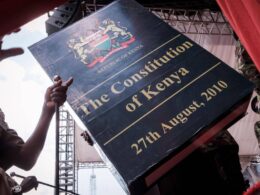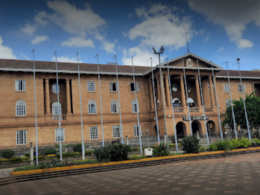By Susan Kendi
The trial of Ali Muhammad Ali Abd-Al-Rahman is scheduled to resume on Monday, April 25, 2022, with the testimony of the fourth prosecution witness.
Three prosecution witnesses have testified in the case: P-1042, P-029, and P-903. The first witness, Alex De Waal (P-1042), testified on April 6 and 7 and is a joint prosecution and defence expert witness. He is the Executive Director of The World Peace Foundation and a Professor at Tufts University.
Alex De Waal’s testimony spoke to the significant events that took place before and during the armed conflict in Darfur in 2003/2004; the root causes of the armed conflict in Darfur; the parties to the armed conflict, their relationship, and the response of the Government of Sudan (GOS) to the attacks by the armed rebel groups. He also spoke on the impact of the conflict on the civilian population, the administration and traditional leadership structure, the role of ethnicity, race, tribe, and religion in Darfur, and the geography, climate, economy, sociology, and political history of Darfur.
The second prosecution witness, P-029, was a protected witness with the court blurring face and voice distortion. They testified on the identity of Abd-Al-Rahman and his alleged position of authority; attacks by armed rebel groups in Bindisi and Mukjar in 2003; the attack on Kodoom, Bindisi, and surrounding areas in August 2003 allegedly led by the accused, the alleged imprisonment and execution of displaced persons in Mukjar in February/March 2004 by GoS Forces and the Janjaweed including Abd-Al-Rahman and the existence of mass graves in Darfur, Sudan.
The third witness, P-903, testified on Abd-Al-Rahman’s identity and background; the link between his real name and the nickname Ali Kushayb; his alleged position of authority as a leader of the Janjaweed in Wadi Salih; an attack on a village near Mukjar by GoS Forces and the Janjaweed in March 2004, and Abd-Al-Rahman’s alleged role leading the Militia/Janjaweed. He also testified on his detention in Mukjar police station; alleged mistreatment of detainees by Abd-Al-Rahman and others at Mukjar police station; a convoy of detainees; and Abd-Al-Rahman, allegedly departing Mukjar police station and returning without detainees, and a speech made by minister Harun regarding the Fur.
The trial opened on April 5 before the International Criminal Court in the Hague, Netherlands. Abd-Al-Rahman is suspected of 31 counts of war crimes and crimes against humanity allegedly committed between August 2003 and at least April 2004 in Darfur, Sudan.
The trial began with the reading of the charges against Abd-Al-Rahman to ensure that the accused understood the nature of the charges before taking a plea. The accused pleaded not guilty to all the charges.
“Mr. Abd-Al-Rahman, do you understand the nature of charges that have been read to you today?” asked Presiding Judge Joanna Korner.
“I do,” said Abd-Al-Rahman.
“Do you wish to plead guilty of any or all counts?” asked Judge Joanna Korner.
“Not a single one. I reject all of these charges. I am innocent of all these charges. I am not accused of all these charges,” responded Abd-Al-Rahman
Abd-Al-Rahman is represented by Lead Lawyer Cyril Laucci and Lawyer Iain Edwards. Earlier in the day, the Court’s Prosecutor Karim AA Khan QC and Senior Trial Lawyer Julian Nicholls took the floor to make opening statements on behalf of the prosecution. The opening statements were followed by a short unsworn statement by the accused, Abd-Al-Rahman, and a presentation by the Legal Representatives of Victims(LRV), lawyers Natalie von Wistinghausen and Nasser Mohamed Amin Abdalla.
The Trial Chamber I of the International Criminal Court is composed of Presiding Judge Joanna Korner, Judge Reine Alapini-Gansou, and Judge Althea Violet Alexis-Windsor.
Ali Muhammad Ali Abd-Al-Rahman surrendered himself voluntarily in the Central African Republic and was transferred to the ICC’s custody on June 9, 2020. His first appearance before the ICC was on June 15, 2020, and the confirmation of charges hearing took place between May 24 to 26, 2021. Two months later, in July, Pre-Trial Chamber II confirmed all the charges brought by the ICC Prosecutor against Abd-Al-Rahman.
Abd-Al-Rahman is accused of 31 counts of war crimes and crimes against humanity allegedly committed between August 2003 and at least April 2004 in Darfur, Sudan. He is said to be the commander of Janjaweed militias in the Wadi Saleh area of West Darfur. He also alleged to have held authoritative positions in Sudanese government auxiliary forces, the Popular Defence Forces, and Central Reserve Police.
According to a report by the Human Rights Watch, “in 2003, the Janjaweed is said to have worked alongside the Sudanese government forces, during the armed conflict with rebel groups to carry out a systematic campaign of “ethnic cleansing.” The campaign targeted civilians from African Fur, Masalit, and Zaghawa ethnic groups, from which the members of the rebel groups were drawn.”
The Abd-Al-Rahman trial is significant for ensuring justice for the victims and survivors of the Darfur conflict. It is the first trial where an accused is charged for the crimes allegedly committed in Darfur 18 years ago.
The ICC had issued two arrests warrants against Former President of Sudan, Omar Al-Bashir, on March 4, 2009, and July 12, 2010, respectively, for crimes committed in Darfur. However, Sudan is yet to surrender him to the ICC after the Sudanese army overthrew him following protests demanding his removal. He is currently serving a sentence in Sudan for genocide and war crimes committed in Darfur.





